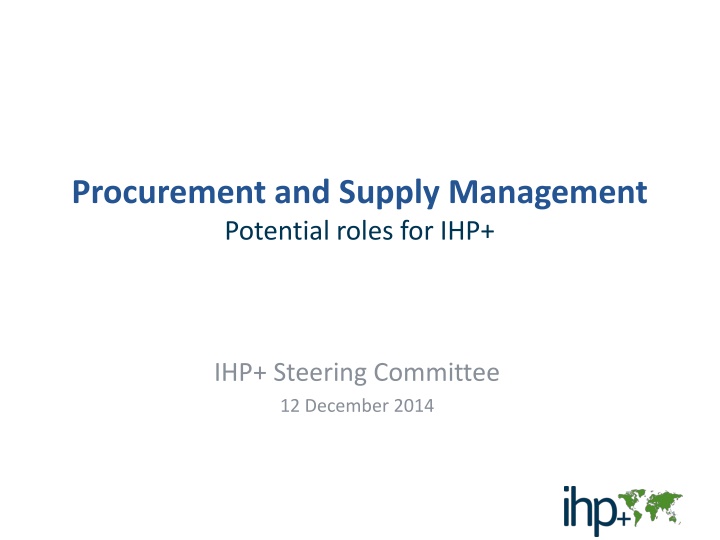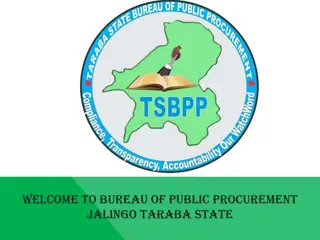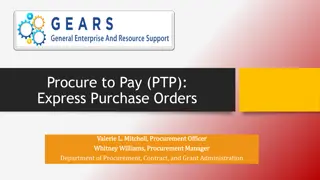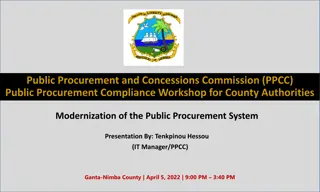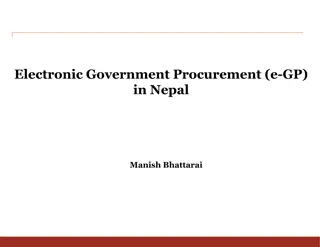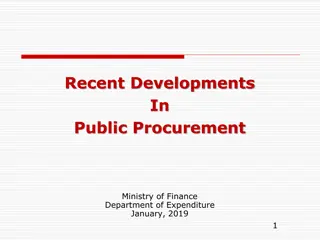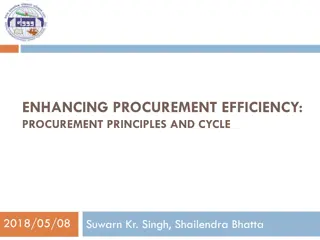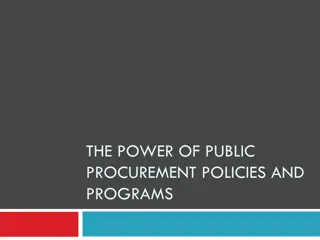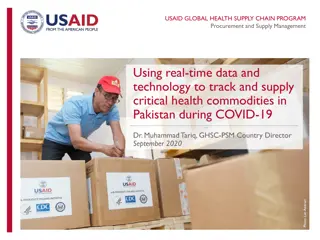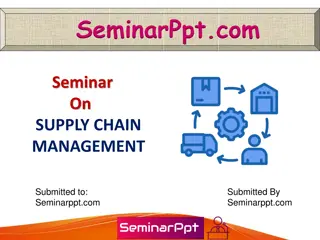Enhancing Procurement and Supply Management for Improved Health Services Delivery
Exploring potential roles for the IHP+ Steering Committee in procurement and supply management, with a focus on leveraging funds efficiently, harmonizing supply chains, and addressing challenges in different countries. The discussion includes the rationale for engagement, current supply chains in Myanmar, issues faced by various countries, global procurement mechanisms, and proposed roles for the IHP+.
Download Presentation

Please find below an Image/Link to download the presentation.
The content on the website is provided AS IS for your information and personal use only. It may not be sold, licensed, or shared on other websites without obtaining consent from the author.If you encounter any issues during the download, it is possible that the publisher has removed the file from their server.
You are allowed to download the files provided on this website for personal or commercial use, subject to the condition that they are used lawfully. All files are the property of their respective owners.
The content on the website is provided AS IS for your information and personal use only. It may not be sold, licensed, or shared on other websites without obtaining consent from the author.
E N D
Presentation Transcript
Procurement and Supply Management Potential roles for IHP+ IHP+ Steering Committee 12 December 2014 1
Rationale for IHP+ engagement Importance in health service delivery Leverage better use of domestic health spending as well as external funds Multiple parallel systems: inefficient, wasteful, unsustainable Difficult area: some countries far from having procurement capacity DPs want to use Scope for progress: (at least) harmonisation of supply chains
Current major supply chains in the Myanmar health system
Issues from CHTM 2014 Countries at very different stages Myanmar example: developing a single supply chain strategy for all partners to support Ethiopia example: High % of DP funded procurement through national agency, gradual strengthening of systems Guinea Bissau, Chad et al struggling to reform PSM, with fragmented support Issues include Performance improvements are hard to sustain how to respond to declines (corruption, crises)? Outsourcing to private sector requires skills in contracting; willing, competent providers; recurrent financing Drug quality assurance - continuing need to strengthen Capacity building & knowledge transfer needed
Global procurement mechanisms Benefits of lower prices, faster procurement appreciated (but sometimes countries can buy cheaper) Multiple mechanisms which work differently a challenge to learn at country level May be inconsistent with country regulations (registration, procurement process etc) Scope to identify combined effects and good practices
Roles for IHP? Inter-agency Supply Chain Group (ISG) has identified areas for collaboration including joint PSM planning for Nigeria and DRC, common performance indicators ISG is an informal global group, no governance or funding (so far) IHP+ could review progress and learn lessons Progress at country level in harmonising PSM support and strengthening systems: joint procurement assessments, joint plan for support, reducing parallel and inconsistent systems, use of national procurement Feedback from countries on effect of multiple, diverse global procurement mechanisms, how to improve
Questions to the Steering Committee Are these the most relevant issues for IHP+ to address? What are highest priorities for IHP+ efforts? How to take forward? Suggestions Case studies (at country request) e.g. progress in Myanmar, DRC and/or Nigeria; other volunteers Engage countries, implementers and CSOs to oversee case studies, spot gaps (as steering or working group)
